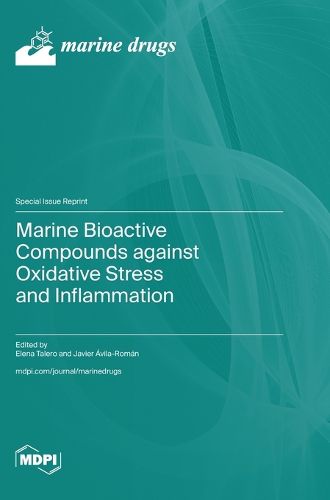Readings Newsletter
Become a Readings Member to make your shopping experience even easier.
Sign in or sign up for free!
You’re not far away from qualifying for FREE standard shipping within Australia
You’ve qualified for FREE standard shipping within Australia
The cart is loading…






This title is printed to order. This book may have been self-published. If so, we cannot guarantee the quality of the content. In the main most books will have gone through the editing process however some may not. We therefore suggest that you be aware of this before ordering this book. If in doubt check either the author or publisher’s details as we are unable to accept any returns unless they are faulty. Please contact us if you have any questions.
Acute inflammation is an innate defense mechanism against infectious or non-infectious stimuli; however, if this process is prolonged or uncontrolled, acute inflammation may become chronic, leading to many inflammatory chronic diseases. In addition, oxidative stress emerges when an imbalance occurs between the excessive production of reactive oxygen species (ROS) and their neutralization by the antioxidant system, which plays a main role in the pathogenesis of chronic diseases. ROS can activate many signaling pathways and induce the expression of a variety of pro-inflammatory mediators. The current need to find new bioactives and the wide diversity of chemical structures that the marine environment potentially represents have raised the interest of the scientific community in recent years. The living beings that inhabit the oceans constantly adapt their metabolism to the changing conditions of their environment. This fact potentially generates a high variability of compounds that serve to protect them from stress produced by changes in light, temperature, food source, or competition for resources, and many of them have shown therapeutic properties. This reprint contains original in vitro and in vivo studies as well as two complete reviews, reporting the anti-inflammatory and antioxidant properties of bioactive compounds, such as polysaccharides, carotenoids, lipids, and peptides, isolated from different marine organisms, including algae, microalgae, jellyfish, and bacteria. These findings support the potential use of these compounds as therapeutic agents in inflammatory pathologies induced by oxidative stress.
$9.00 standard shipping within Australia
FREE standard shipping within Australia for orders over $100.00
Express & International shipping calculated at checkout
This title is printed to order. This book may have been self-published. If so, we cannot guarantee the quality of the content. In the main most books will have gone through the editing process however some may not. We therefore suggest that you be aware of this before ordering this book. If in doubt check either the author or publisher’s details as we are unable to accept any returns unless they are faulty. Please contact us if you have any questions.
Acute inflammation is an innate defense mechanism against infectious or non-infectious stimuli; however, if this process is prolonged or uncontrolled, acute inflammation may become chronic, leading to many inflammatory chronic diseases. In addition, oxidative stress emerges when an imbalance occurs between the excessive production of reactive oxygen species (ROS) and their neutralization by the antioxidant system, which plays a main role in the pathogenesis of chronic diseases. ROS can activate many signaling pathways and induce the expression of a variety of pro-inflammatory mediators. The current need to find new bioactives and the wide diversity of chemical structures that the marine environment potentially represents have raised the interest of the scientific community in recent years. The living beings that inhabit the oceans constantly adapt their metabolism to the changing conditions of their environment. This fact potentially generates a high variability of compounds that serve to protect them from stress produced by changes in light, temperature, food source, or competition for resources, and many of them have shown therapeutic properties. This reprint contains original in vitro and in vivo studies as well as two complete reviews, reporting the anti-inflammatory and antioxidant properties of bioactive compounds, such as polysaccharides, carotenoids, lipids, and peptides, isolated from different marine organisms, including algae, microalgae, jellyfish, and bacteria. These findings support the potential use of these compounds as therapeutic agents in inflammatory pathologies induced by oxidative stress.